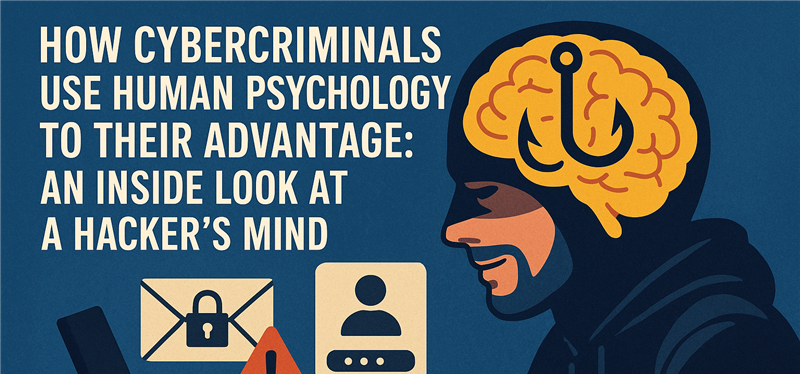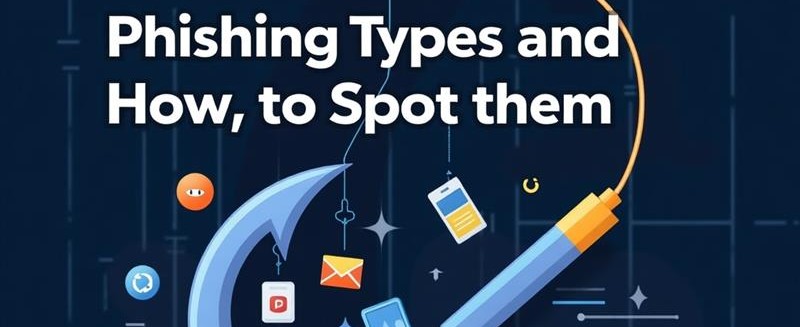How Cybercriminals use human psychology to their advantage: An inside look at a Hacker’s mind
Most people think of code, tools, and firewalls when they think of hacking. But ask an experienced cybercriminal, and they’ll tell you — the weakest link isn’t the machine; it’s the human. Social engineering attacks take advantage of psychological weaknesses such as curiosity, fear, urgency, and trust. In this article, we explore the hacker’s perspective and show how, without writing a single line of code, access control and financial gain can be achieved through psychological manipulation.

The Power of Social Engineering
Social engineering is basically the art of tricking people into giving up confidential information. Instead of hacking systems, attackers hack people rather than systems.
Examples:
- Phishing emails: Impersonating banks, recruiters, businesses, etc.
- Vishing: Fake customer support calls (“Sir, we’re from Paytm; please verify your OTP”).
- Tailgating: Physically pursuing someone without permission into a restricted area.
Mental Exploits: How Hackers Target Human Behavior
Hackers can break your thinking more easily than they can break firewalls. They use psychology as a weapon by taking advantage of innate human instincts like fear, urgency, trust, and curiosity. When you get an email to reset your password on any of the social media platforms by clicking on that link, it’s not just text — it’s a psychological trap designed to trigger panic. Messages that look familiar can fool you into thinking they are real, as from people you trust, and fake rewards can make you act out of greed. These tricks are planned carefully, and most people don’t even realise they are being fooled.
Real Case: The 2020 Twitter Hack
Hackers used phone phishing (vishing) to trick Twitter employees into revealing internal credentials, and they were successful in hijacking the accounts of Elon Musk, Obama, and Apple, tweeting crypto scams and making over $100,000 in a few hours. One phone call can break multi-billion-dollar platforms.
Common Tactics in India
In India, hackers often use fake job offers to steal personal information from freshers. Scammers also pose as customer support from banks or apps like Paytm and trick users into sharing OTPs or installing remote access apps. These tactics rely on fear, urgency, and trust — and they’re becoming more common every day.
How to Beat Hacker’s Mind
The best defence against psychological attacks is awareness. Always think before you click; no legitimate company will ask for passwords or OTPs through email or SMS. Take a moment to confirm anything that seems strange by getting in touch with the source directly using their official contact information. Hackers rely on urgency to make you act without thinking, so slowing down is a powerful way to stay in control. Finally, spread awareness. Whether it’s your team, friends, or family, educating others helps build a strong human firewall.
Conclusion
The most powerful cyberattacks do not begin with malware, they begin with manipulation. Hackers don’t need to break into systems when they can simply trick you into opening the door. Stay alert. Stay sceptical. Your brain is both your greatest asset and your biggest vulnerability.




